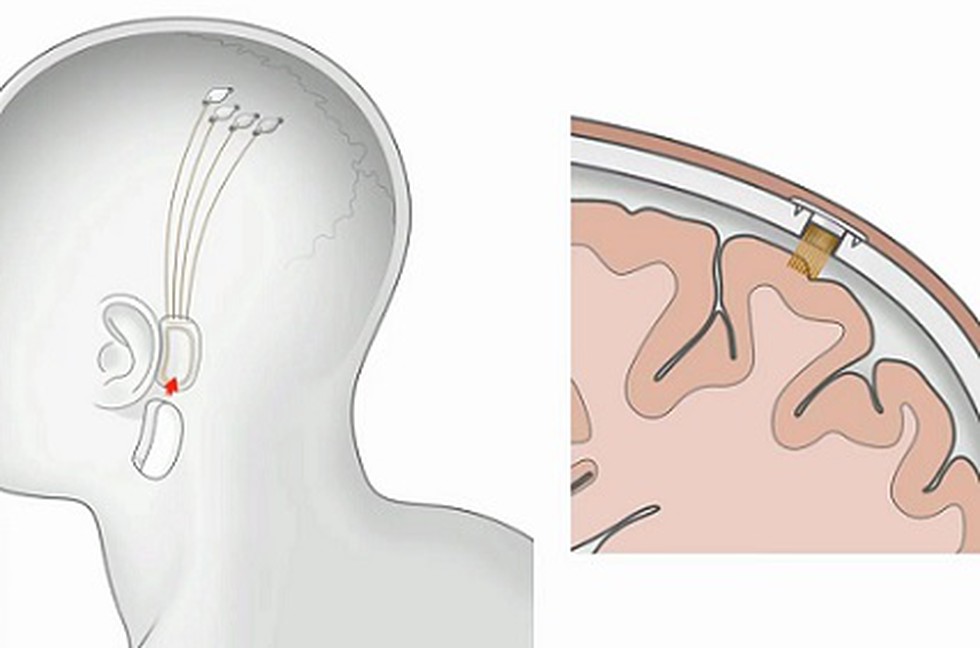Neuralink Elon Musk and Human Brain-Machine Interface
Neuralink is creating a chip that would be implanted in humans to monitor and stimulate brain activity concurrently.

Friday, December 24, 2021 | Chimniii Desk
Elon Musk was named Time magazine's person of the year for 2021, a decision that drew widespread criticism from various critics. There is no doubting that Musk had a significant impact on the year's events. He may be able to sway the cryptocurrency markets, as his SpaceX aims to land humans on Mars by 2026.
And Neuralink, which Musk cofounded in 2016, is creating a chip that would be implanted into people's heads to monitor and stimulate brain activity concurrently. It is designed to help those with severe spinal cord injuries and neurological diseases regain full bodily functionality. "As users consider moving their arms or hands, we decode their intents and transmit them over Bluetooth to the user's PC," Neuralink's website states.
Neuralink demonstrated an experimental coin-sized gadget on a pig named Gertrude in August 2020: "It's like a Fitbit in your head with tiny cables," Musk explained. Indeed, Musk touted Neuralink by stating that it would "visualise neurons functioning in real time."
Advertisement

Then, in April 2021, Neuralink revealed how two brain chips implanted in the motor cortex of a macaque monkey could coordinate hand and arm movement. Eventually, the monkey was able to play a video game entirely with his mind — without touching the joystick!
Musk stated during a recent live-streamed discussion at The Wall Street Journal CEO Council Summit that Neuralink intends to begin human trials of brain chips in 2022. Musk stated that it would include "bridging messages between existing neurons." Of course, the first hurdle is obtaining regulatory approval from the United States FDA (Food and Drug Administration) to perform such a human research.
The ultimate goal of Neuralink is to develop a brain-machine interface in which human consciousness and machine intelligence converge. Musk believes that the technology might evolve into a complete brain interface in less than 25 years, enabling'symbiosis' between humans and artificial intelligence — one would not need to communicate to command.
Brain-chip interfaces are hybrid entities in which chips and nerve cells make a close physical connection that enables information to be sent in one or both ways. While Elon Musk's Neuralink received significant media attention, an interesting fact is that a 20-person biotech company named Synchron received FDA approval in July to begin human trials of its brain chips!
So, what is the human race's future? Oscar Goldman's opening line in the 1970s American science fiction television series 'The Six Million Dollar Man', based on Martin Caidin's 1972 novel 'Cyborg', was: "Gentlemen, we can recreate him." We possess the necessary technology. We are capable of creating the world's first bionic man... Better than he was previously. Superior – stronger – quicker."
Advertisement
By the way, the term 'cyborg' is a portmanteau of the terms 'cybernetic' and 'organism'; in science fiction, it refers to a person that is equal parts human and machine, or a machine that resembles a human being. And in 1965, DS Halacy's book 'Cyborg: Evolution of the Superman' discussed the existence of a bridge... between mind and matter.
As one might expect, chip implants have already sparked heated arguments in several parts of the world over privacy, legal, technical, professional, medical, security, political, and religious issues. In August 2017, a USA Today article titled "You will get chipped – eventually" was published.
And it is not limited to brain chips. According to a September 2018 storey in The Atlantic, microchip implants are evolving from a geeky curiosity to a legitimate health aid, and one may be running out of good reasons to say 'no.' Its applications are anticipated to grow beyond preserving medical records to assisting families in following relatives with severe dementia. Numerous concerns about cybersecurity and privacy would undoubtedly haunt us. Nonetheless, Elon Musk argues that "we are already cyborgs to some extent." And that may not be entirely erroneous!
When I consider brain chip implantation, 'Data,' the anatomically complete android from Star Trek's 24th century, peeps into my imagination. Instead of Data, an emotion chip was placed in Lore – Data's sibling.
However, Data's drive to achieve humanity persists. Data began utilising the emotion chip a few years after getting it from Lore. And for the first time, he would feel fear. Later on, Data deleted the chip entirely in cases where emotions might be detrimental. As a result, the possibilities are endless!
And fresh real-world science fiction would continue to unfold and mutate in order to create the cyborgs of the day after tomorrow!
Advertisement